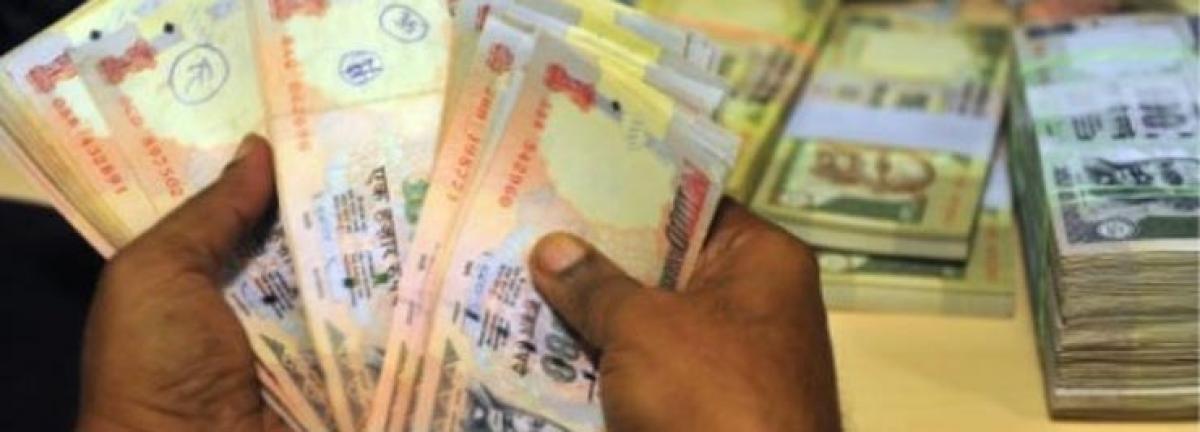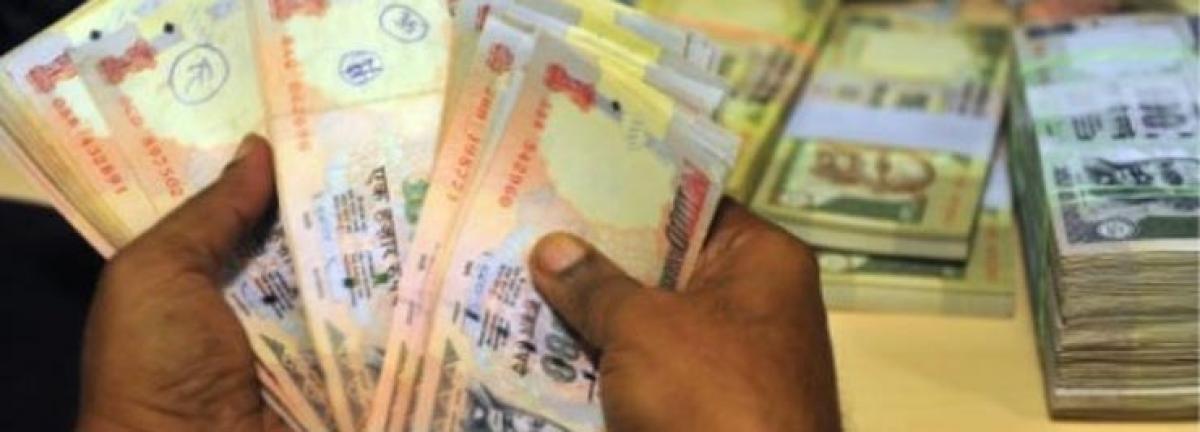Live
- ‘Get Set, Grow Summit 2024’ Focuses on Digital Detox for Families
- Stokes motivates his team to put in extra effort, says England pacer Potts
- From overcoming setbacks to leading India in U19 Women’s Asia Cup, Niki Prasad's amazing journey
- Driving Enterprise Security: Inside Venkata Reddy Thummala’s Leadership Journey
- Constitution debate: PM Modi hails 'Nari Shakti'; makes strong pitch for 'United Bharat’
- Abhijeet Bhardwaj: Revolutionizing Enterprise Analytics with Innovation and Expertise
- Bihar: Inquiry initiated against principal who went to buy veggies during school hours
- Press Sri Lankan Prez for release of Indian fishermen: TN Cong MP to EAM Jaishankar
- TN: DMK postpones executive meet due to heavy rains & Parliament session
- Porous silicon oxide electrodes can fix durability issues in batteries: Researchers
Just In

x
Highlights
When a deadline for declaring illegal assets expires Wednesday, billions of rupees hidden in foreign bank accounts or funnelled into property abroad will emerge into the light -- or so the government hopes.
When a deadline for declaring illegal assets expires Wednesday, billions of rupees hidden in foreign bank accounts or funnelled into property abroad will emerge into the light -- or so the government hopes.

Narendra Modi took power last year pledging to crack down on the "menace" of so-called black money -- vast piles of wealth kept secret from the tax authorities -- with a battalion of new measures.
A three-month window ending on September 30 allows tax evaders to declare their stash and pay a softer penalty, with immunity from prosecution, or risk up to ten years in jail if they get caught.
"The era of tax havens has come to an end. It is no longer safe to keep your assets overseas illegally," Finance Minister Arun Jaitley said in May, shortly after the Black Money Act was passed.
On the campaign trail two years ago, Modi claimed 1.5 million rupees could be given to every citizen if illegal funds were brought back from overseas.
But the challenge of cajoling back into the economy the $439.59 billion that fled India illicitly from 2003-2012, according to estimates from the Global Financial Integrity group in Washington, is dizzying.
The wealthy channel money to tax havens such as Switzerland or Singapore, convert it into jewellery, antiques, paintings or property, or send a relative abroad for half the year to avoid tax.
"The intention is clearly to target Indian citizens who have stashed wealth overseas and want to come clean," Sonu Iyer, partner for India tax services at EY (Ernst & Young) said of the declaration window.
"It is a warning before the government brings in a very harsh law."
Tough talk
The Black Money Act is the latest in a widening crackdown by government, which has set up a team of regulators and ex-judges to identify illicit account holders and repatriate hidden funds.
It has started bringing in biometric identity cards tied to bank accounts and last year handed a secret list of 627 people suspected of concealing money abroad over to the Supreme Court.
The tough stance comes as the global net tightens on tax evaders, with new information-sharing accords between countries and even secretive Switzerland releasing the names of suspect account holders in May.
"Those days when people could hide things abroad and think they will never be found out are largely behind us," V. Anandarajan, Joint Secretary of the Central Board of Direct Taxes, told a forum last week.
On the domestic front, targets for investigation include temples and ashrams, where lavish donations can be a front for money laundering, and cricket betting.
The property sector too is awash with black money, with analysts saying cash is a component in most transactions.
"Realty is one area where black money is huge. Politicians, investors, entrepreneurs park money, then cash it out later," Pankaj Kapoor, managing director at Liases Foras, a real estate research firm in Mumbai, told AFP.
But the Black Money Act and another new law that seeks to stop properties being acquired in another person's name have spooked buyers, with sales already taking a hit, Kapoor said.
'No witch hunts'
Opinions on the law range from punitive to draconian, with business body Assocham lambasting it in August for spreading "confusion, fear and panic" among investors.
The government says it does not seek to name and shame and that its purpose is simply to force shadowy assets back into the mainstream.
"We have said no witch hunts, no fishing inquiries. We are going to take what is declared at face value," tax official Anandarajan said.
But the crackdown has triggered reports of mass anxiety among India's rich, who fear difficult questions may follow if they come forward.
Only a handful of people are said to have declared assets so far, although authorities say they have received 65 billion rupees and expect most to arrive in the final week.
Anil Kumar, a former High Court judge, told a forum in Delhi that the promise of immunity may not be enough to allay fears of retribution.
"There is still ambiguity in the minds of the people, whether this will exonerate them from prosecution," he said.

Next Story
More Stories
ADVERTISEMENT
© 2024 Hyderabad Media House Limited/The Hans India. All rights reserved. Powered by hocalwire.com







